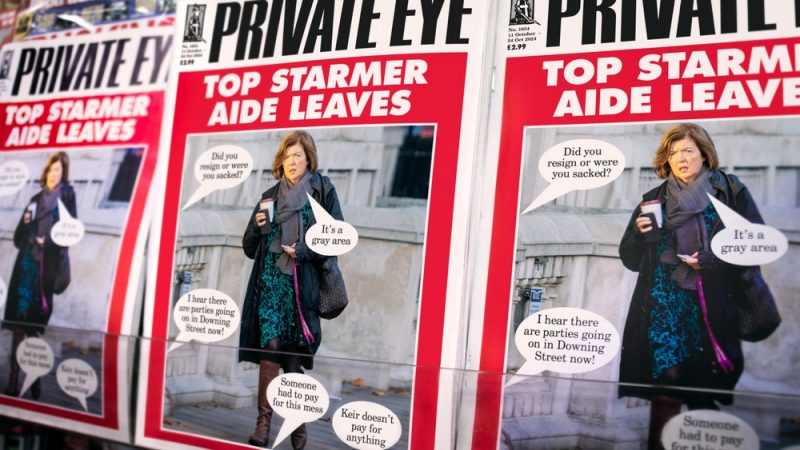
“It’s a gray area,” a frowning Sue Gray was pictured saying on a Private Eye frontpage last month, as journalists asked if she’d resigned or been sacked.
Many Westminster watchers will have a sense of deja vu today. It appears Gray won’t be taking up the new role as envoy for nations and regions that was announced at the time of her high-profile departure as the Prime Minister’s chief of staff. What is less clear is exactly why that is.
Mixed messages
The Financial Times reported on Tuesday lunchtime that Gray had “taken a decision not to take the role”, according to “allies” cited by the paper.
“She’s taken time to think about it properly, talking to stakeholders, but ultimately she’s decided she doesn’t want to do it,” the source claimed.
But within an hour, The Guardian reported with a different slant – saying the Prime Minister had been “planning to withdraw his offer”.
The paper reports some concerns about the media attention likely to follow Gray into the role, and question marks over what the job would entail.
It suggests Gray turning down the job and Downing Street withdrawing the offer may not be entirely incompatible, though – reporting that “with speculation swirling over her position”, allies of Gray suggested she had “jumped before she was pushed”.
Downing Street don’t comment on potential peerage for Gray
Later on Tuesday, a Downing Street spokesperson told Westminster journalists Gray had “decided not to take up that role”.
Pressed on whether the government had been on the brink of withdrawing the offer, she highlighted that the appointment had previously been agreed, noted that subsequently “we confirmed she was taking a break”, and then repeated that Gray had then “decided not to take up the role”.
The spokesperson declined to comment on whether Gray could receive a peerage or a payout, or whether she had been receiving pay during her break.
Gray has “played a vital role strengthening relations with nations and regions” already, and had the Prime Minister’s thanks for it, she added. “Beyond that, respectfully we won’t comment further on individual staffing matters.”
Relations with the nations and regions of the UK are still a “huge priority”, she added, though said there was no “immediate plan” to update the media on any replacement for Gray in the role.
Deja vu
There was notably a similar lack of clarity when Gray left as chief of staff, suggesting a similar battle behind the scenes to shape the narrative. Some outlets reported she had “resigned”, and others suggesting she was pushed.
Sources told the BBC’s Chris Mason at the time “a decision was made on Friday and the prime minister was willing to sack Sue Gray. He had decided, whatever she said, that she could no longer be his chief of staff. In the end they were able to find a mutually convenient role into which she could be demoted”.
The story also notably came within an hour of the Archbishop of Canterbury’s resignation, which is likely to overshadow the news about Gray.
Downing Street and Gray were not immediately available for comment.
- SHARE: If you have anything to share that we should be looking into or publishing about this story – or any other topic involving Labour– contact us (strictly anonymously if you wish) at [email protected].
- SUBSCRIBE: Sign up to LabourList’s morning email here for the best briefing on everything Labour, every weekday morning.
- DONATE: If you value our work, please donate to become one of our supporters here and help sustain and expand our coverage.
- PARTNER: If you or your organisation might be interested in partnering with us on sponsored events or content, email [email protected].




More from LabourList
‘Turning public services around: Haringey’s story of child protection’
‘Can Labour turn the green tide back to red?’
Tom Belger column: ‘Why is Labour making migrant exploitation easier?’